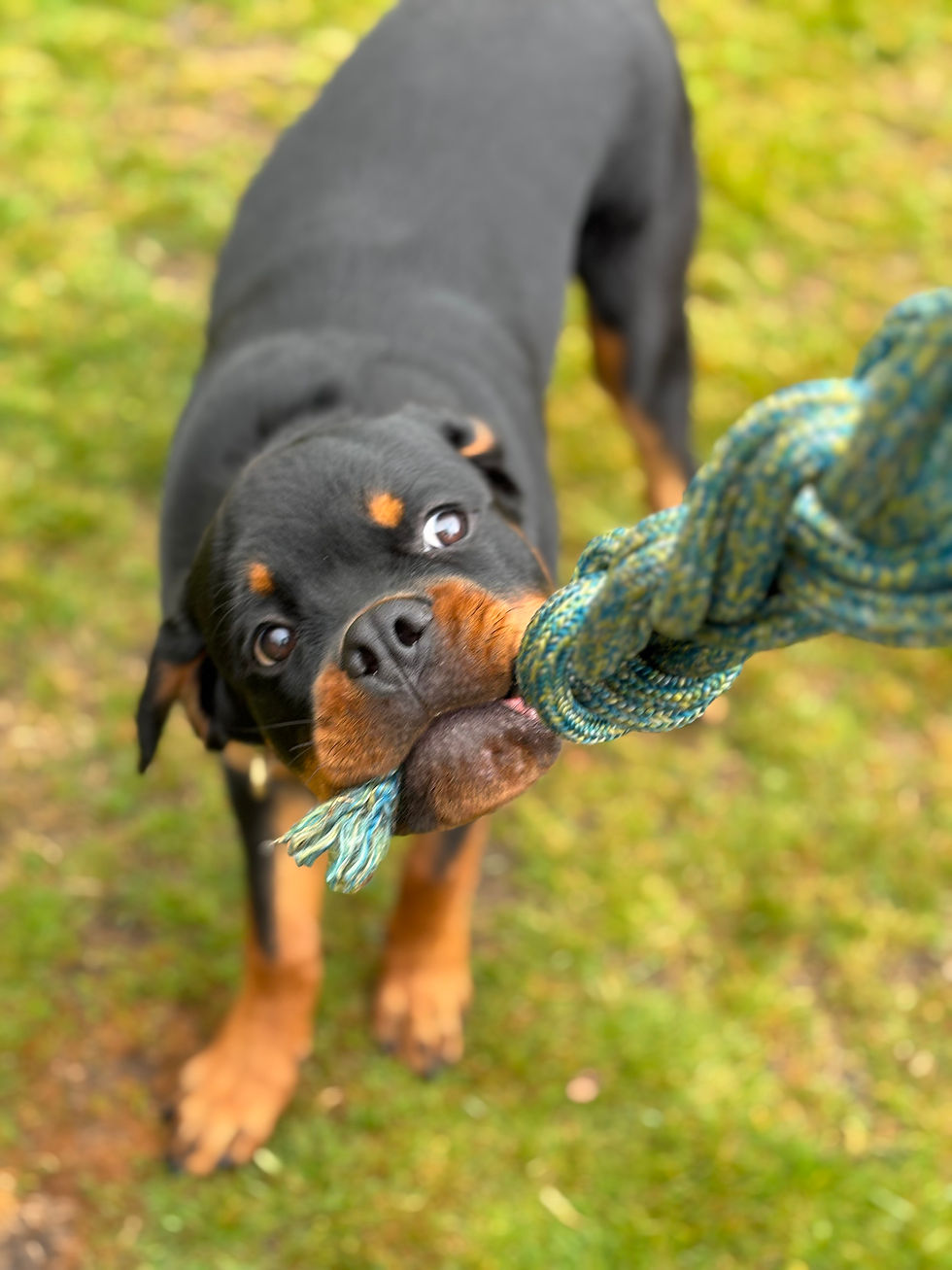Why does my dog growl at me - understanding growling in dogs
- Janet

- Sep 9, 2025
- 3 min read
Why does my dog growl at me - understanding growling in dogs
Growling is often one of the most concerning behaviours reported by dog owners. It can be unsettling to hear, and many assume it signals aggression. In reality, growling is an important form of canine communication. When we take the time to understand what our dogs are telling us, we can prevent escalation, build trust, and keep both people and dogs safe.

What Growling Really Means
A growl is a warning signal. It is your dog’s way of saying, “I am uncomfortable with what is happening right now.” Far from being purely negative, growling provides us with valuable information about our dog’s emotional state.
Suppressing or punishing this warning does not resolve the underlying issue; it only removes the dog’s ability to communicate before resorting to more serious behaviours such as snapping or biting.

Do dogs have happy growls?
Yes! Lots of dogs growl when they're playing with you, for example, especially during a game of tug. It's perfectly normal, and the key is watching the other body language to see if your dog is communicating a warning, or if they're enjoying the game.
Common Reasons Dogs Growl
Dogs may growl in a variety of contexts, including:
Fear or Anxiety – A dog may growl when they feel threatened or overwhelmed.
Resource Guarding – Protecting food, toys, sleeping areas, or even a person.
Pain or Discomfort – Dogs in pain often use growling to signal a desire to be left alone.
Play – Some dogs growl during play, particularly in games such as tug-of-war. Context and body language help distinguish playful growls from warning growls.
Frustration – When a dog cannot access something they want, frustration may be expressed through growling.
Should I correct my dog if he growls?
It can be tempting to correct a dog for growling, but doing so increases risk. By punishing the warning, we remove the dog’s ability to communicate discomfort and push them towards more dangerous behaviours such as snapping or biting.
Instead, we should view growling as an opportunity to listen to our dogs: our dog has given us feedback that something is not right.
How to respond if your dog growls at you or someone else
When a dog growls, the following steps are recommended:
Remain Calm – Avoid reacting with anger or fear.
Create Space – Stop what you are doing and give the dog distance.
Identify the Trigger – Observe what preceded the growl. Was it handling, food, another animal, or a particular environment?
Address the Underlying Cause – Work on the trigger using reward-based methods, so your dog is more comfortable moving forward.
Seek Professional Support – A qualified trainer or behaviourist can design a tailored behaviour modification plan to help you.

Why is my dog growling at me for no reason?
Dogs don’t growl for no reason, just like we don’t talk or shout for no reason. There will be a reason for it - your dog is trying to tell you something and you just have to remain calm and figure it out. Step one is to stop whatever is happening at that moment and create space, so you can think about what could have caused your dog to try to communicate to you that they are uncomfortable.
Proactive Measures
Preventing escalation relies on understanding and respecting canine body language. Subtle signals—such as lip licking, turning the head away, yawning, or a stiffened posture—often precede a growl. By noticing and respecting these early cues, we can intervene before the situation becomes more serious.
Building trust through positive reinforcement, and safe environments for them and respect reduces the likelihood of dogs needing to resort to growling in the first place.
Conclusion
Growling is not a sign of a “bad dog.” It is a vital communication tool that allows us to understand our dogs’ needs and emotions. By recognising the reasons behind growling and responding appropriately, we protect both our dogs’ welfare and public safety.
Respect the growl—it is the dog’s way of giving us a chance to listen before they feel forced to escalate further.
Need help with your dog’s growling or behaviour concerns?
As a qualified trainer, I provide tailored support to help you understand your dog, address the root causes, and build lasting confidence. Get in touch today to discuss how we can work together to create a calmer, happier relationship with your dog:
Email: leadandfollowdogtraining@gmail.com or book a call.




Comments